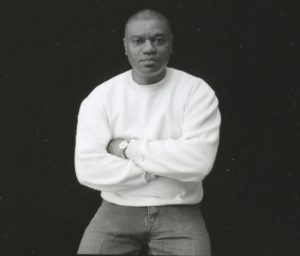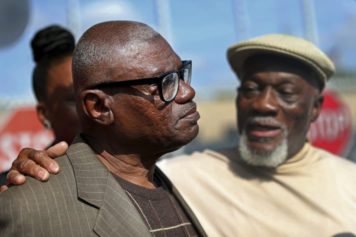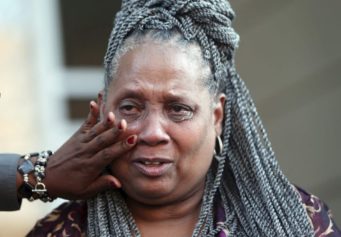
This 1999 file image scanned from a contact sheet provided by the Innocent Project shows Wilbert Jones during a portrait session. Jones, who has spent nearly 50 years in prison, could be freed Tuesday, Nov. 14, 2017. State District Court Judge Richard Anderson threw out Jones’ conviction in the rape of a nurse on Oct. 31, saying authorities withheld evidence that could have exonerated Jones decades ago and the case against him was “weak, at best.” (Deborah Luster/The Innocence Project via AP, File)
BATON ROUGE, La. (AP) — A Louisiana man could be freed Tuesday after nearly 50 years in prison for a rape conviction recently thrown out by a judge who concluded authorities withheld evidence.
State District Court Judge Richard Anderson overturned Wilbert Jones’ conviction Oct. 31, saying the case against him was “weak, at best” and authorities withheld evidence that could have exonerated Jones decades ago.
Anderson scheduled a hearing Tuesday to hear arguments over whether Jones should be released. Defense attorneys’ want Jones released immediately or freed on “minimal” bail.
East Baton Rouge Parish District Attorney Hillar Moore’s office is asking the Louisiana Supreme Court to review the judge’s decision. In the meantime, prosecutors want Jones to stay behind bars.
Jones, now 65, was 19 when police arrested him on suspicion of abducting a nurse at gunpoint from a Baton Rouge hospital’s parking lot and raping her behind a building on the night of Oct. 2, 1971. Jones was convicted of aggravated rape at a 1974 retrial and sentenced to life in prison without the possibility of parole.
In his ruling, Anderson said authorities concealed “highly favorable” evidence that the crime was committed by another man linked to two similar attacks.
The state’s case against Jones “rested entirely” on the nurse’s testimony and her “questionable identification” of Jones as her assailant, the judge wrote. The nurse, who died in 2008, picked Jones out of a police lineup more than three months after the rape. But she also told police that the man who raped her was taller and had a “much rougher” voice than Jones had.
Jones’ lawyers claim the nurse’s description matches a man who was arrested but never charged in the rape of a woman abducted from the parking lot of another Baton Rouge hospital, 27 days after the nurse’s attack. The same man also was arrested on suspicion of raping yet another woman in 1973, but was only charged and convicted of armed robbery in that case.
Anderson said the evidence shows police knew of the similarities between that man and the nurse’s description of her attacker.
“Nevertheless, the state failed to provide this information to the defense,” he wrote.
Moore’s office has denied that authorities withheld any relevant evidence about other Baton Rouge rapists.
“The state was not obligated to document for the defense every rape or abduction that occurred in Baton Rouge from 1971 to 1974,” prosecutors wrote in February.
Jones’ attorneys from Innocence Project New Orleans describe him as a “highly trusted prisoner and a frail, aging man” who doesn’t pose a danger to the community. The late nurse’s husband isn’t opposed to his release, they wrote in a court filing last week.
“He feels that Mr. Jones has been in prison long enough and that he should be able to get out and spend his remaining years with his family,” the lawyers wrote.
Another trial for Jones is “difficult to conceive” since prosecutors likely would be barred from using the nurse’s old trial testimony, defense attorneys argued.
“Without this identification evidence, the state has no evidence with which to prosecute Mr. Jones,” they wrote.
Jones’ attorneys claim that a prosecutor who secured his conviction had a track record of withholding evidence favorable to defendants. A 1974 opinion by a state Supreme Court justice said the prosecutor was responsible for 11 reversed convictions over the preceding year — “an incredible statistic for a single prosecutor,” the justices noted.

